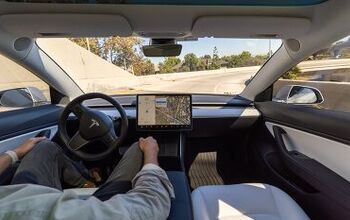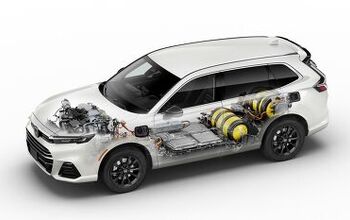Pennsylvania Dealer Group Accused of PPP Fraud, Extorting Cash From Staff

When the United States announced it would be offering payroll relief to the countless small businesses it impacted with government shutdowns intended to combat COVID-19 earlier this year, everyone breathed a sigh of relief into their mask. Unfortunately, the Paycheck Protection Program (PPP) became a confusing bureaucratic mess almost instantly. It wasn’t clear how companies would account for part-time or contracted employees, numerous banks denied help to those with less than stellar financial histories, and the application website repeatedly crashed — which was awful for a service that was designed to accommodate candidates on a first-come-first-serve basis.
There were also numerous provisions that allowed big business to take advantage if their individual locations were small enough and loopholes for companies that weren’t even required to shut down operations. Criticisms understandably began to surface, followed by months of commercials asking concerned citizens to report instances of fraud. One such example came into focus this week after a former sales representative for a Pennsylvania-based dealership group launched a federal lawsuit against their ex-employer alleging that it had violated the False Claims Act in relation to PPP.
The lawsuit, filed in July by Branden Bucher and unsealed in U.S. Middle District Court in Pennsylvania late in November, said Blaise Alexander Inc. and the group’s 20 stores applied for a minimum of 13 PPP loans and received between $4.65 million and $11.1 million from the SBA. Data released by the Small Business Administration last week confirmed that the matter, showing 13 Blaise Alexander entities with Pennsylvania addresses accepting $6,945,700 in government loans.
While that doesn’t necessarily mean it has acted illegally, the suit claims the dealer group should never have been eligible due to its size. The Blaise Alexander group is reported to have more than 1,200 employees (SBA reports closer to 750) but PPP restricts access to forgivable loans to firms with fewer than 500. And here’s where things start getting weird. Initially, the language in the relief bill made it seem as though franchise owners with fewer than 500 employees per location were eligible. But the lawsuit takes a major detour when it accuses the dealer group of actively forcing the sales team to reimburse it for the PPP funds by withholding sales commissions.
From Automotive News:
“[Blaise Alexander’s] conduct undermines a core purpose of the CARES Act — to put money in the pockets of employees,” the lawsuit said.
Joel Breneman, director of operations for the dealership group, told the newspaper that employees were not asked to return any wages that they received.
“I can confidently say that these allegations are false and this is an attempt by an individual to benefit from a frivolous suit,” Breneman said.
A dealership spokeswoman contacted by Automotive News declined to comment. Bucher’s lawyers did not respond to requests for comment.
While the alleged employee reimbursement plan is a new trick, Blaise Alexander is hardly the first company to be accused of PPP fraud. Neyra Motor Cars of Cincinnati was also accused of PPP loan fraud by a former sales representative in October. But automotive dealerships were among the largest recipients of COVID-related funding in 2020, making them prime targets for anybody hunting for financial misdoings. Meanwhile, the whole of the automotive industry had taken in an estimated $132 billion in government loans by July, with numerous entities being forced to give some of that back after people became outraged. For example, both AutoNation and Penske Automotive applied for PPP and took heat for it for being so large. Though it could be argued that they did indeed need the money, especially after the layoffs commenced.
[Image: LM Photos/Shutterstock]

A staunch consumer advocate tracking industry trends and regulation. Before joining TTAC, Matt spent a decade working for marketing and research firms based in NYC. Clients included several of the world’s largest automakers, global tire brands, and aftermarket part suppliers. Dissatisfied with the corporate world and resentful of having to wear suits everyday, he pivoted to writing about cars. Since then, that man has become an ardent supporter of the right-to-repair movement, been interviewed on the auto industry by national radio broadcasts, driven more rental cars than anyone ever should, participated in amateur rallying events, and received the requisite minimum training as sanctioned by the SCCA. Handy with a wrench, Matt grew up surrounded by Detroit auto workers and managed to get a pizza delivery job before he was legally eligible. He later found himself driving box trucks through Manhattan, guaranteeing future sympathy for actual truckers. He continues to conduct research pertaining to the automotive sector as an independent contractor and has since moved back to his native Michigan, closer to where the cars are born. A contrarian, Matt claims to prefer understeer — stating that front and all-wheel drive vehicles cater best to his driving style.
More by Matt Posky
Latest Car Reviews
Read moreLatest Product Reviews
Read moreRecent Comments
- Kwik_Shift_Pro4X The only car racing I'll watch is rally car.
- Offbeat Oddity The price is definitely too high, but this generation of Accord has still been very reliable- not far off from the Camry. I believe the CVTs in these have held up very well, so while not ideal, it wouldn't deter me- the mileage is just way too high.
- VoGhost "compliance EVs" - so typically Posky. Come on, Matt, come clean about what Big Oil is paying you already.
- VoGhost Great to see leadership from Washington in supporting American businesses and job creation.
- VoGhost Oh, Mattie, I am BEGGING you to take a course in economics. There's probably a community college near you offering courses for free or very cheap. Seriously, people this ignorant of basic economics really should not be writing this drivel. Stick to what you know: pimping for big oil.


































Comments
Join the conversation
Meanwhile, Donald Trump and Jared Kushner received 3.65 million dollars in PPP loans. They're small businesses you know.
Say it isn't so, a dishonest car dealership.